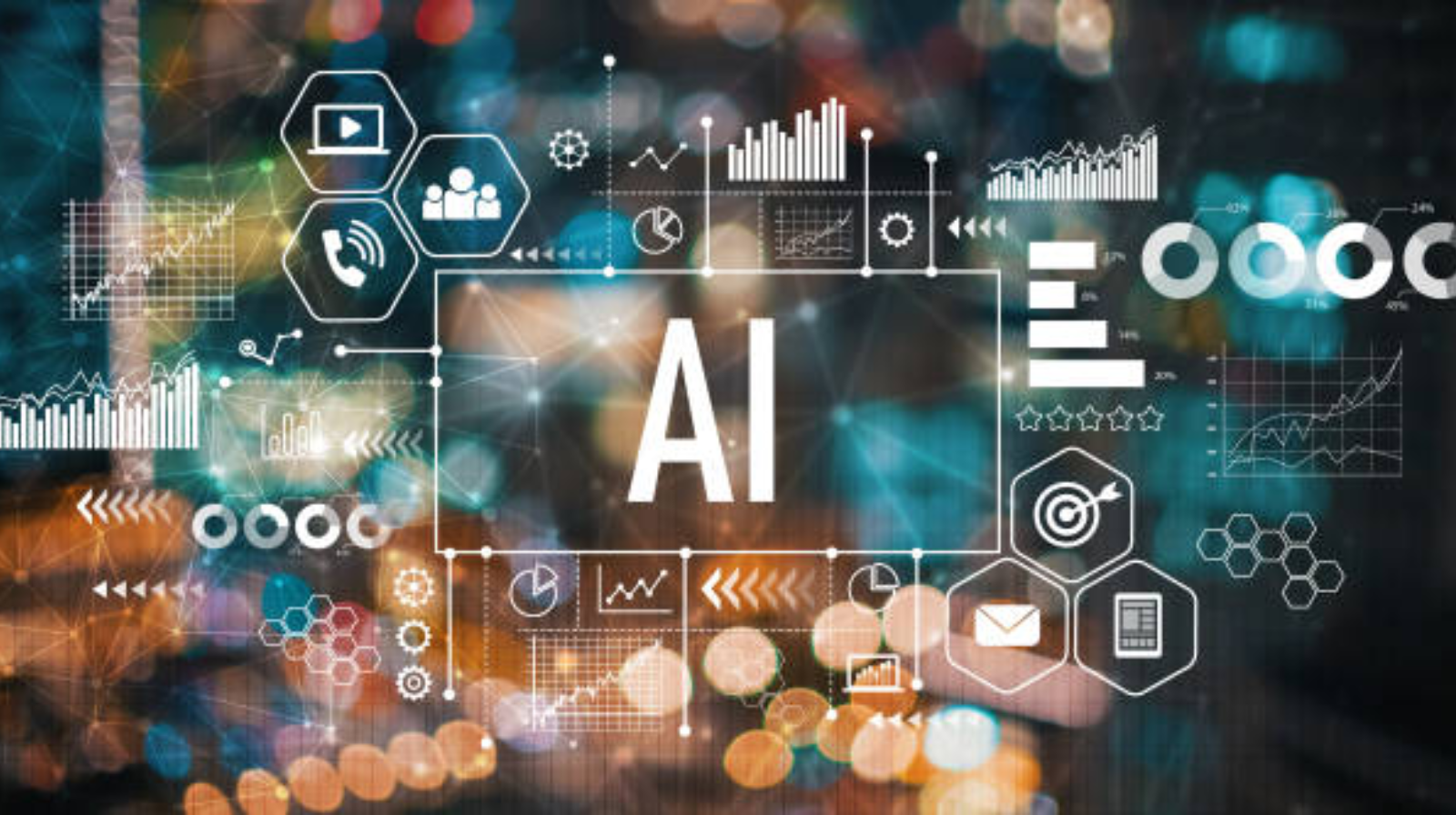Artificial Intelligence (AI) is not just transforming how we interact with technology, it's revolutionising how search engines work. With tools like Google’s Search Generative Experience (SGE), Microsoft Copilot, and Perplexity AI shaping the future of search, AI search Optimization is no longer optional; it's essential for digital growth.
If your website still relies solely on traditional SEO tactics, it’s time to adapt. AI search engines interpret content differently. They focus less on keywords and more on intent, context and authority. Understanding this shift can help you attract the right audience, increase visibility and drive sustainable traffic growth.At Brainstormer Technologies, we offer AI-driven SEO services designed to help businesses navigate this new search landscape and stay ahead of the curve.
In this guide, we’ll explore AI search Optimization strategies that can boost your website traffic and explain the key differences between AI search optimization and traditional SEO.
Understanding AI Search Optimization
AI search Optimization (AIO) refers to tailoring your content and website structure to meet the way AI-powered search engines understand and display information. Unlike traditional SEO, which depends heavily on backlinks and keyword density, AI search Optimization focuses on semantic understanding, user engagement and contextual relevance.
AI search engines use natural language processing (NLP) and machine learning to determine what users want, not just what they type. So, instead of focusing on “what words” you use, AIO focuses on “what meaning” you deliver.
How AI Search Engines Differ from Traditional Search Engines
AI search engines interpret content and queries very differently from traditional search engines. Here are the main distinctions:
- Keyword Reliance: Traditional search relies heavily on exact keywords, while AI focuses more on meaning and context.
- Context Understanding: Older search systems interpret queries literally. AI uses NLP to understand deeper context and intent.
- Content Type: Traditional SEO favors keyword-based pages. AI prefers conversational, question-driven content.
- User Intent: Traditional search provides general results; AI delivers personalized answers based on behavior and query style.
- Ranking Signals: Traditional engines prioritize backlinks and keywords. AI focuses on semantic relevance, authority and expertise.
- Response Style: Traditional results show link lists. AI engines often give direct, conversational summaries.
These differences mean businesses need a smarter, data-driven content strategy to stay visible.
1. Focus on Semantic Search and Intent Optimization
AI search engines don’t just look for matching keywords; they interpret meaning. For example, if someone searches, “best eco-friendly packaging ideas for small businesses,” AI doesn’t just show pages with those words, it looks for content that comprehensively explains solutions, offers examples, and demonstrates expertise.
How to Optimise for Intent:
- Understand search intent types informational, navigational, transactional and conversational.
- Use tools like Google’s “People Also Ask” and AI keyword tools to find contextual variations.
- Create in-depth content that answers “why,” “how,” and “what” questions.
- Avoid keyword stuffing; focus on natural phrasing.
Example: Instead of writing, “AI search optimization strategies for SEO,” try “Learn how AI search engines interpret your content and what strategies help your website rank better.”
By doing this, you align your content with the way users think, not just what they type.
2. Optimise for Conversational and Voice Search
Voice search and AI assistants like ChatGPT, Alexa,and Google Bard are changing how people search. Queries are becoming longer and conversational, which means your content should sound natural, not robotic.
Tips to Optimise for Voice Search:
- Use conversational language and short sentences.
- Add FAQ sections that answer natural questions like “What is AI search optimization?”
- Target long-tail keywords and question-based queries.
- Ensure your site loads fast and works well on mobile devices.
Since voice and AI searches often summarise answers, ensure your page provides concise, well-structured information that can easily be quoted in AI summaries or snippets.
3. Build Topic Authority Instead of Keyword Clusters
AI search prioritises authoritative, trustworthy content. Rather than producing dozens of keyword-stuffed articles, focus on building topic authority within your niche.
How to Build Topic Authority:
- Create pillar content (in-depth guides) supported by cluster articles (specific subtopics).
- Use consistent internal linking to signal topical relevance.
- Demonstrate E-E-A-T — Experience, Expertise, Authoritativeness and Trustworthiness.
- Include real-world examples, case studies, or original data.
For instance, if your business offers SEO services, publish multiple articles around “AI search optimization,” “semantic SEO,” and “AI content strategy.” Together, they help search engines see you as a trusted expert.
4. Leverage Structured Data and Schema Markup
Structured data helps AI search engines understand the context of your content. It enables features like rich snippets, FAQs and product reviews in search results, improving your visibility.
Actionable Steps:
- Use schema markup for articles, FAQs, products, and reviews.
- Implement JSON-LD format (recommended by Google).
- Validate your markup using Google’s Rich Results Test tool.
- Add author schema to highlight expertise.
By optimising for structured data, you’re essentially speaking the “language” AI understands best.
5. Create Human-Centric, Engaging Content
AI search engines value content that helps people, not just ranks well. The algorithm now measures user satisfaction signals such as dwell time, bounce rate and content engagement.
Ways to Create Human-Centric Content:
- Use storytelling and relatable examples.
- Write in a conversational tone, as if you’re explaining to a friend.
- Add visuals, infographics and bullet points to enhance readability.
- Encourage interaction through comments, quizzes or CTAs.
- Keep paragraphs short two to four sentences.
When your content feels genuinely helpful and engaging, both readers and AI algorithms reward you.
6. Optimise for AI Search Summaries and Zero-Click Results
AI-powered search tools, like Google’s SGE and Perplexity AI, often summarise results directly on the search page. That means users may not click your site unless your content is featured in those summaries.
To Capture AI Search Summaries:
- Write clear, concise answers to common questions.
- Use structured formatting (H2s, bullet points, numbered lists).
- Include definition-style sentences early in your content.
- Ensure content freshness, update data and facts regularly.
When AI systems detect your content as accurate, updated, and clear, it’s more likely to be cited in AI responses.
7. Integrate AI Tools into Your SEO Strategy
AI tools aren’t just for search engines, they can enhance your content creation too. From keyword research to predictive analytics, using AI can make your strategy sharper and more efficient.
Recommended Tools:
- SurferSEO or NeuronWriter – optimize content for semantic search.
- ChatGPT or Claude – generate ideas and outlines.
- MarketMuse – identify topic gaps and improve authority.
- Google Search Console – track performance and insights.
However, always human-edit AI-assisted content. The best results come from combining human creativity with AI efficiency.
8. Optimise Technical SEO for AI Crawlers
AI search engines depend on structured and crawlable data. A well-optimised technical foundation ensures your site is discoverable and easily interpreted by machine learning systems.
Technical Optimization Checklist:
- Improve page load speed using compression and caching.
- Implement mobile-first indexing.
- Ensure XML sitemaps are up to date.
- Optimise URL structures for clarity and hierarchy.
- Use HTTPS for secure browsing.
- Reduce broken links and 404 errors.
Technical health forms the base of all AI-driven ranking strategies.
9. Use Predictive Analytics to Anticipate Trends
AI doesn’t just analyse data, it predicts it. Leveraging predictive analytics allows you to anticipate trending topics, understand audience behaviour, and publish content before your competitors.
How to Apply It:
- Analyse user behaviour through Google Analytics 4 and AI dashboards.
- Monitor search trend shifts with Google Trends or Exploding Topics.
- Use data to forecast seasonal content needs.
- Adjust your publishing calendar based on engagement patterns.
Predictive optimization ensures your content stays relevant and timely.
10. Strengthen Your Content Distribution Strategy
Creating AI-optimised content is just half the battle. You must distribute it across the right channels to gain visibility and backlinks both critical signals for AI search engines.
Distribution Tips:
- Share on LinkedIn, Medium, and niche communities.
- Repurpose blog posts into short-form videos or carousels.
- Encourage collaborations with thought leaders or industry blogs.
- Optimise for social SEO by using AI-based hashtags and captions.
This multiplies your reach, signalling authority and trust to AI algorithms.
Key Differences Between Traditional SEO and AI Search Optimization
Traditional SEO uses keywords and links to help websites show up on search results pages. AI Search Optimization (AIO) works differently. It focuses on what people mean, not just what they type. AIO helps your content show up in AI-generated answers and chat summaries.
Old SEO uses pages full of keywords. AIO uses simple, helpful answers to real questions. It sounds more like how people talk.Also, old SEO shows the same results to everyone. AIO gives personalized answers based on the person’s needs.
The Future Belongs to AI-Optimised SEO
AI search optimization isn’t about replacing SEO, it's about evolving it. As search engines become smarter, so must your strategy. The websites that will thrive in 2025 and beyond are those that understand context, deliver value and speak human while satisfying machine learning systems.
To summarise:
- Optimise for semantic intent, not just keywords.
- Focus on authority, expertise and structured content.
- Adapt to AI search summaries and conversational queries.
- Use AI tools to enhance not replace your content creation.
By embracing these AI search Optimization strategies, you’ll future-proof your website, attract more organic traffic and stay ahead in the fast-evolving digital landscape.





